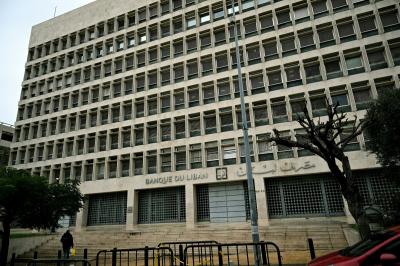The Ministry of Finance is racing against time to reach a settlement that would either allow the long-awaited “financial gap law” to finally see the light — or bury it in a sealed jar and toss it into the “ocean” of the Parliament.
In both scenarios, negotiations with the International Monetary Fund (IMF) would resume, completing the financial-reform triangle that has already been reinforced by amendments to the banking-secrecy law and the bank-restructuring law.
What keeps delaying this settlement is the divergence in views between the Ministry of Finance and the Banque du Liban (BDL) over the $16.5 billion debt added by former governor Riad Salameh shortly before the end of his term.
Although an audit conducted by global firm KPMG confirmed that this debt is real and owed by BDL, the Ministry of Finance maintains that it consists merely of overdraft withdrawals from a Eurobond account opened for the ministry at BDL in 2004.
Therefore—according to the ministry—it cannot be classified as debt or advances, but rather as foreign-currency withdrawals backed by Lebanese-lira amounts at the official rate of 1,500 LL held at the central bank.
Negotiations Between Ministry of Finance and the Central Bank
During the most recent meeting of the joint committee tasked with resolving this dispute—held a week ago—Finance Ministry representatives refused to sign the session’s minutes.
“BDL’s governor then went in person last Saturday morning to the Finance minister with the report, attempting to reach an agreement based on the principle that neither the debt dies nor the state collapses,” a knowledgeable source said.
According to circulating information, the two sides have reached a near-final formula to return the funds—or a large share of them—without classifying them as public debt. Doing so would carry two major risks:
Violating the IMF requirement to reduce the public-debt-to-GDP ratio to between 60% and 80%.
Triggering anger among international Eurobond holders, who could view concealing such a massive debt as fraudulent behavior, classifying it as “odious debt.”
Had they known of its existence, they would have subscribed to the bonds at far lower amounts—or not at all—based on Lebanon’s actual debt-servicing capacity.
This could push creditors to file lawsuits against the Lebanese state in international courts, endangering key national assets such as gold reserves and certain state institutions, which could face seizure or attachment until the dispute is resolved.
The emerging compromise centers on increasing the state’s equity contribution in BDL’s recapitalization.
While previous recovery plans proposed a $2.5 billion capital injection, the Ministry of Finance is now expected to approve raising that amount to $8 billion, representing about half the disputed debt.
Major Obstacles Remain
Despite the likelihood that both sides could accept this solution, three major hurdles stand in the way of passing the financial gap law before year-end:
The prime minister’s rejection of recognizing the amount as public debt altogether, according to those familiar with his position.
Commercial banks’ refusal of the IMF-mandated “hierarchy of losses” principle, which requires banks—given that the crisis is systemic—to absorb losses from their own capital before any alternative financing solution is considered.
Banks’ opposition to the IMF’s newest request to examine the interconnected balance sheets of BDL and commercial banks.
Until recently, discussions focused solely on deposit irregularities and the need to write off $30–34 billion in deposits.
According to economic journalist Mounir Younes, the new condition conveyed to the Lebanese delegation after the IMF–World Bank fall meetings in Washington implicitly means auditing the entire financial-engineering operations, including the Optimum case, and tracing the $8 billion profit banks earned in January 2020.
“The audit will not overlook anything related to subsidy programs, Sayrafa platform operations, or loan repayments made after the economic collapse,” Younes said.
He believes the audit may go beyond a simple review and extend to forensic accounting, which all parties categorically reject.
Even if—hypothetically—all these obstacles were resolved in the short time remaining before the end of the year, this would not necessarily mean that matters have finally reached a positive conclusion.
What truly matters is that Parliament does not stall in studying and passing the financial gap law, nor postpone it until after the parliamentary elections, on a procedural level.
But on a substantive level, the core issue remains: the state’s ability to actually implement the law.
Please post your comments on:
[email protected]
 Politics
Politics













